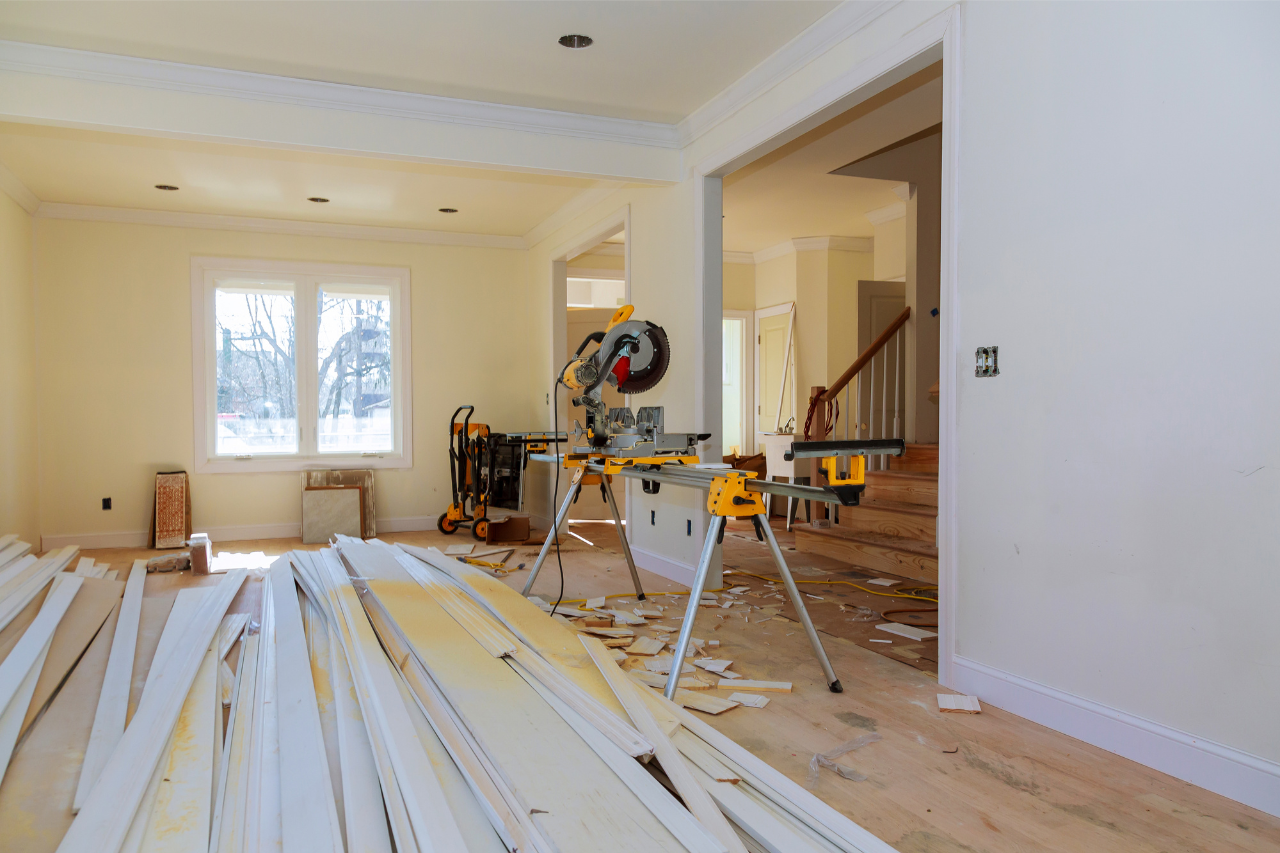
Renovation Coverage: Home Insurance 101

Share:
How Does a Renovation Impact My Homeowners Policy?
If you’re planning a home renovation, it’s important to understand how your homeowner’s insurance policy might be affected. Home renovations can be costly, and if something goes wrong during the process, you could be left with a hefty bill.
Most home insurance policies will cover damage that is caused by unforeseen events, such as fires or storms. However, if the damage is caused by your own negligence, you may be liable for the costs. This is why it’s important to understand how your home insurance policy applies to renovations.
If you’re planning a home renovation, be sure to speak with your insurance agent about how your policy might be affected. They can help you identify any potential coverage gaps and make sure you have the coverage you need.
How Does My Dwelling Coverage Work?
Dwelling coverage is a key part of most home insurance policies. It helps to protect your home’s structure in the event of a covered loss, such as a fire or severe weather.
If you’re planning a home renovation, it’s important to understand how your dwelling coverage might be affected. Depending on the scope of the project, your dwelling coverage could increase or decrease.
If you’re adding an addition to your home, for example, your dwelling coverage will likely increase. This is because the value of your home will have increased, and your policy will need to provide enough coverage to rebuild it in the event of a covered loss.
On the other hand, if you’re simply remodeling an existing room in your home, your dwelling coverage probably won’t change. However, it’s important to speak with your insurance agent to be sure. They can help you understand how your home insurance policy will apply to your specific renovation project.
Are DIY projects covered by homeowners insurance?
Most home insurance policies will cover damage caused by negligence on the part of the homeowner. However, there are some exceptions.
For example, if you’re doing a home renovation yourself and you make a mistake that causes damage to your home, your home insurance policy might not cover the cost of repairs. This is because it would be considered a self-inflicted loss.
If you’re planning to do a home renovation yourself, it’s important to speak with your insurance agent about how your policy might be affected. They can help you understand what coverage you have and what type of risks you might be facing.
What if I hire a contractor?
If you hire a contractor to do a home renovation, you’ll likely be covered by their insurance policy. However, it’s important to understand the details of their coverage.
For example, most contractors’ insurance policies will only cover damage that is caused by the contractor’s negligence. This means that if the contractor makes a mistake that causes damage to your home, their insurance policy will likely cover the cost of repairs.
However, if the damage is caused by your own negligence, you may be liable for the costs. This is why it’s important to understand how your home insurance policy applies to renovations.
If you’re hiring a contractor to do a home renovation, be sure to speak with their insurance agent about how their policy might apply to your project. They can help you understand what coverage you have and what type of risks you might be facing.
What if something goes wrong during the renovation?
If something goes wrong during a home renovation, it’s important to understand how your home insurance policy might be affected. Most home insurance policies will cover damage caused by negligence on the part of the homeowner.
However, there are some exceptions. For example, if you’re doing a home renovation yourself and you make a mistake that causes damage to your home, your home insurance policy might not cover the cost of repairs. This is because it would be considered a self-inflicted loss.
If you’re hiring a contractor to do a home renovation, their insurance policy will likely cover damage caused by their negligence. However, if the damage is caused by your own negligence, you may be liable for the costs.
It’s important to speak with your insurance agent about how your home insurance policy applies to home renovations. They can help you understand what coverage you have and what type of risks you might be facing.
What About Other Coverage?
In addition to dwelling coverage, most home insurance policies also include coverage for your personal belongings, liability, and medical expenses.
If you’re planning a home renovation, it’s important to understand how these other coverage types might be affected. For example, if you’re adding an addition to your home, your personal belongings coverage will likely increase. This is because you’ll have more stuff in your home, and your policy will need to provide enough coverage to replace it in the event of a covered loss.
Similarly, if you’re adding an addition to your home, your liability coverage will likely increase. This is because you’ll have more space on your property that could be potentially dangerous to others. If someone is injured on your property, your liability coverage will help to pay for their medical expenses.
Finally, if you’re adding an addition to your home, your home insurance policy might need to be revised to reflect the increased value of your home. This is because home insurance policies typically have a maximum limit on the amount they’ll pay out for a covered loss. If your home is worth more than the limit on your policy, you could be left with some out-of-pocket expenses.
To avoid this, be sure to speak with your insurance agent about increasing the limit on your home insurance policy. They can help you determine the appropriate amount of coverage for your home, based on its value.
What If I Have Questions?
If you have any questions about how your home insurance policy might be affected by a home renovation, be sure to speak with your insurance agent. They can help you understand your coverage and make sure you have the protection you need.
Most Popular


What Does Travel Insurance Cover for Families? A Complete Guide


Identity Theft Protection Through Your Bank or Credit Card
Subscribe To Our Weekly Newsletter
Categories
Related Posts

Pet Insurance: The Complete Guide to Protecting Your Pet
Share: In a world where veterinary costs continue to rise, pet insurance has become increasingly vital for pet owners. This comprehensive guide will help you

What Does Travel Insurance Cover for Families? A Complete Guide
Share: Planning a family vacation? Travel insurance can protect your loved ones and your investment. From flight cancellations to medical emergencies, here’s everything you need

Annual vs. Single-Trip Travel Insurance: Which Plan Fits Your Travel Style?
Share: Trying to decide between annual and single-trip travel insurance? This comprehensive guide helps you make the smart choice based on your travel habits, budget,

Identity Theft Protection Through Your Bank or Credit Card
Share: With identity theft cases rising by 70% in the past year, many consumers are turning to their existing financial institutions for protection. What many
